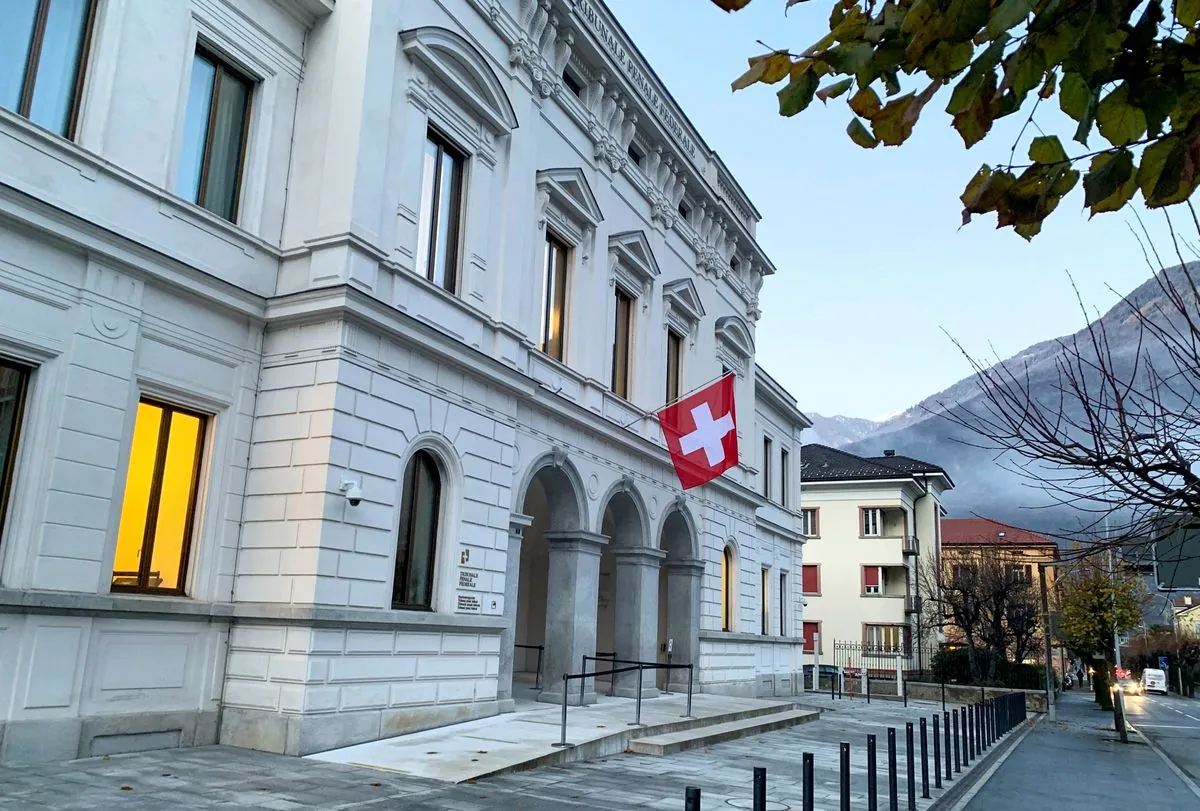Ex-Gunvor Employee Faces Corruption Trial in Swiss Court
A former Gunvor employee is on trial in Switzerland for allegedly bribing Congolese officials to secure oil contracts. The rare public case sheds light on corruption in the commodities trading sector.

In a landmark case that began on September 30, 2024, a former employee of Gunvor, one of the world's largest independent commodities trading houses, is facing trial in Switzerland's Federal Criminal Court. The defendant, a French national who previously worked as a finance manager, is accused of corrupting high-level officials in the Republic of Congo in exchange for lucrative oil contracts.
This trial marks a significant moment in Switzerland's efforts to combat corruption within its $80 billion commodities trading sector. The case is particularly noteworthy as it represents a rare instance of a corruption case involving the Swiss commodities industry reaching a public court proceeding.
The investigation into Gunvor's activities began in 2011, with Swiss prosecutors scrutinizing the Geneva-based company's operations. Over the past 13 years, two judgments have already been issued in connection with this ongoing probe. In 2018, a court ruling accepted a plea bargain from another ex-employee who admitted to paying bribes in Congo and Ivory Coast. Subsequently, in 2019, Gunvor itself was found criminally liable for corruption and ordered to pay approximately 94 million Swiss francs ($111.5 million) in penalties.

The current defendant is alleged to have played "an active part" in corrupt payments exceeding $35 million to Congolese officials between 2010 and 2011. These allegations highlight the ongoing challenges faced by the Republic of Congo, the fourth-largest oil producer in sub-Saharan Africa, in combating corruption within its oil industry.
The indictment also claims that the accused offered benefits to a Congolese official representing the son of President Denis Sassou Nguesso during a meeting at a Paris restaurant in 2014. This meeting, allegedly aimed at securing new oil deals, was reportedly captured on video. The prosecution cites this recording as evidence, claiming it shows the defendant acknowledging past payments to Congolese officials and demonstrating awareness of the ongoing corruption probe.
The public nature of this trial could have far-reaching implications for Switzerland's commodities trading sector, which accounts for approximately 3.8% of the country's GDP. Agathe Duparc, a representative from the Swiss non-governmental organization Public Eye, emphasized the potential deterrent effect of the trial, stating, "These cases are not usually heard in public and that could play a role in both revealing the chain of responsibility and preventing future incidents."
Switzerland, home to many of the world's largest commodities trading companies, has faced criticism for its slow progress in prosecuting foreign bribery cases. However, the country has been working to improve its anti-money laundering and anti-corruption frameworks in recent years. This trial, taking place in Bellinzona, demonstrates Switzerland's commitment to addressing these issues and upholding the principles of the OECD Anti-Bribery Convention, which it ratified in 2000.
The case is scheduled to conclude on October 2, 2024. If found guilty, the defendant could face a maximum penalty of five years in prison, reflecting the serious nature of the charges and Switzerland's efforts to combat private corruption.
As this trial unfolds, it serves as a reminder of the ongoing challenges in ensuring transparency and ethical practices within the global commodities trading industry. The outcome of this case may have significant implications for future anti-corruption efforts in Switzerland and beyond.
"We have no comment, as Gunvor is not a party to the procedure or trial. All matters were concluded in 2019."
This case highlights the importance of robust regulatory frameworks and vigilant oversight in the commodities sector. As Switzerland continues to strengthen its position as a global hub for commodities trading, cases like this underscore the need for continued efforts to maintain integrity and transparency in international business transactions.


































